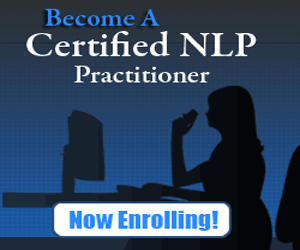NLP in Training the Power to Facilitate
How can NLP help to design and run a course that has a positive result for everyone, including you, the trainer? Deni Lyall outlines the processes, gives plentiful advice and shares her personal experiences.
I have a degree in electrical engineering and loved mathematics at school – a logical lady I felt. So there I was, one summer afternoon, listening to the voice of my coach gently encouraging me to walk along an imaginary timeline on the carpet of the hotel room. This was to help me with the problem we were exploring! I took one step and looked at him quizzically. What was supposed to happen? Another step, another look. And another and another. Then suddenly it happened. For some reason I felt a calmness go through me and the situation seemed to be settled. I knew it would be OK in the autumn.
This was my first experience of Neuro Linguistic Programming (NLP) and, I have to say, I left that room feeling somewhat bemused.
In the following years I heard more about NLP and realised that it is an emotive subject. Should I mention my experience with it to other people or not? Rather than being sceptical about something I knew very little about, curiosity got the better of me and I decided to find out more. Eventually I found a small group of like-minded people and a good trainer. Fourteen months later I had successfully completed both practitioner and master practitioner training.
For me, NLP is a very useful addition to my toolkit. It’s a little bit like the pizza slice a friend recently bought me; I don’t know how I managed without it and it’s handy for more than just pizza, but I’ve still kept all my knives. Rather than allow NLP to take over, I have integrated it into my toolkit and used it to enhance what I already do.
Put simply, NLP is about using the language of the mind to allow you to consistently achieve the outcomes you want. It comprises some philosophies, some tools and techniques, and some methodologies. With around 2 million bits of data coming to us every second we generalise, delete and distort the information to cut it down to a reasonable amount.
To do this we use our experiences, our values and beliefs, our attitudes, our use of language, our memories and “metaprograms“. The information that is left is internally represented in our mind ,which then produces our (emotional) state, which in turn affects the way we behave. NLP helps to provide choices as to how that information affects us. It also helps us to understand how and why others may react differently to the same information.
NLP is a large topic with many aspects to it and I don’t intend to cover the theory here. There are many good books, tapes and courses on the subject. As a trainer, though, I have found it very useful in three main ways:
- my own self
- interacting with participants
- training design
MY OWN SELF
A key aspect of NLP is about choosing how to react to what’s happening to you. Therefore when I am training I make sure that I choose how I am feeling about it.
I want to be in the best frame of mind for training so that I can confidently handle the situations that I am going to come across during the workshop.
First, I am always positive about the outcome. I put myself into the future, at the end of the workshop, using the present tense in my thoughts. I see the participants enthusing about what they have learned and I look around the room with all the workshop outputs. I hear laughter and good comments about what they have learned, and finally I feel very satisfied with what I have achieved. I understand that not everyone will feel like this about the training, but I focus my thoughts on the people who will feel like that. How does focusing on negative thoughts help you? It just makes you feel unhappy!
Tips
Make sure the feeling you have about the workshop is the one you get when you are feeling very satisfied and happy with something. Get the feeling first by recalling a past experience. Now keep the feeling, then imagine being in your successfully completed workshop.
- Imagine hearing good comments about the workshop in the voice from someone you respect.
- Usually making the picture big, colourful, bright and close up gives it more impact.



